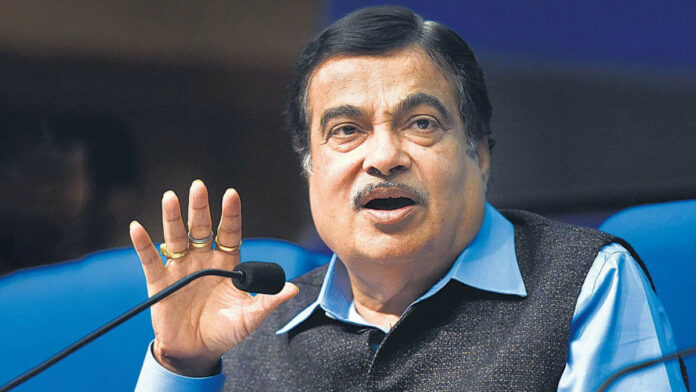Nitin Gadkari
India’s Minister for Road Transport and Highways, Nitin Gadkari, has projected significant growth in the electric vehicle (EV) industry for India by 2030. He expects the country to reach a yearly sales figure of 1 crore (10 million) EVs, which is anticipated to create around 5 crore (50 million) jobs, including both direct and indirect employment. These remarks were made during his address at the 19th EV EXPO 2023.
This summary presents key insights into Nitin Gadkari’s projections for India’s electric vehicle (EV) market and his stance on autonomous vehicles. It outlines the anticipated rapid growth in EV sales, expecting 1 crore (10 million) annual sales by 2030, and the creation of 5 crore (50 million) jobs.

Electric Vehicles in India
The discussion also touches on the 300% increase in EV sales in 2022 and the thriving EV startup ecosystem in India. Additionally, it highlights Gadkari’s opposition to driverless cars, prioritizing job preservation over technological advancement. This analysis encapsulates the balance between embracing sustainable automotive technologies and managing their socio-economic impacts in India.
He pointed out the potential of the Indian EV market, which is estimated to be valued at about $266 billion by 2030. This growth is supported by the rise of the EV startup ecosystem in India, which currently boasts approximately 400 companies.
EV Market Growth India
Nitin Gadkari’s statements on the future of India’s electric vehicle (EV) sector and his stance on autonomous vehicles provide several key insights:
- Aggressive EV Growth Targets: The projection of 1 crore (10 million) annual EV sales by 2030 indicates an ambitious growth trajectory for India’s EV market. This aligns with the global trend towards electrification in the automotive industry and reflects India’s commitment to sustainable and clean energy solutions.
- Economic and Employment Impact: The anticipated creation of 5 crore (50 million) jobs through the EV sector underscores the significant economic and social impact of this shift. This indicates a potential transformation in India’s job market, with new skills and roles emerging in EV manufacturing, infrastructure development, and related services.
- Rapid Market Expansion: The 300% increase in EV sales in 2022 and the expectation of the market reaching approximately $266 billion by 2030 reveal the rapid pace of market expansion and the high potential for investment and innovation in this sector.
- Start-Up Ecosystem Growth: The mention of around 400 EV startups in India indicates a thriving entrepreneurial ecosystem, which is crucial for driving innovation, competition, and consumer choice in the EV market.
- Resistance to Autonomous Vehicles: Gadkari’s firm opposition to driverless cars in India, due to potential job losses, highlights a cautious approach towards disruptive technologies. This stance suggests a priority for job preservation over technological advancement in the automotive sector, at least in the short to medium term.
- Balancing Technology and Employment: The minister’s views reflect a nuanced understanding of the balance between embracing new technologies and managing their socio-economic impact. While advocating for EV adoption, he is also mindful of the potential negative consequences of rapid automation on employment.
- Strategic Focus on Domestic Manufacturing: Gadkari’s encouragement for companies like Tesla to manufacture and sell in India, instead of introducing driverless technology, aligns with the broader ‘Make in India’ initiative. This approach aims to strengthen India’s manufacturing sector and reduce dependence on imports.
India Automotive Sector
Pros and Cons of Nitin Gadkari’s projections and stance on electric vehicles (EVs) and autonomous vehicles in India:
| Aspect | Pros | Cons |
|---|---|---|
| EV Market Growth | – Promotes sustainable and clean energy. – Drives technological innovation. – Aligns with global trends in automotive electrification. | – Requires significant investment in infrastructure. – May face challenges in consumer acceptance and affordability. |
| Job Creation in EV Sector | – Generates employment opportunities. – Spurs economic growth. – Encourages skill development and new roles. | – Transition may lead to job displacement in traditional automotive sectors. – Requires extensive training and skill development programs. |
| Rapid Market Expansion | – Opens avenues for investment and entrepreneurship. – Encourages competitive pricing and consumer choice. – Potentially reduces pollution and dependence on fossil fuels. | – Rapid growth can lead to regulatory challenges. – Quality and safety standards need to keep pace with growth. |
| Growth of EV Startups | – Drives innovation and technological advancements. – Creates a dynamic and competitive market. – Supports the startup ecosystem and economic diversity. | – Startups may face scalability and sustainability challenges. – Risk of market saturation and competition with established players. |
| Resistance to Autonomous Vehicles | – Preserves jobs in driving and related sectors. – Prioritizes human oversight in transportation. – Reflects a cautious approach to disruptive technology. | – May slow technological advancement in the automotive sector. – Potentially delays benefits of autonomous vehicles like reduced accidents and traffic efficiency. – Limits the scope for international tech collaboration. |
| Domestic Manufacturing Focus | – Strengthens local manufacturing industry. – Reduces dependency on imports. – Aligns with ‘Make in India’ initiative for economic self-reliance. | – Could lead to protectionism and trade tensions. – International manufacturers may face barriers to entry. – Requires significant investment in manufacturing capabilities. |
Overall, Gadkari’s perspectives offer a glimpse into India’s strategic planning for its automotive sector, emphasizing sustainable growth, economic development, and cautious adoption of disruptive technologies.
Autonomous Vehicles India
On a different note, Gadkari has expressed strong opposition to the introduction of driverless cars in India. He has cited the potential job loss for up to 80 lakh (8 million) drivers as a key concern. While he is open to companies like Tesla establishing a presence in the Indian market, he insists that they should focus on producing and selling cars, not on introducing autonomous vehicle technology. This position underscores his commitment to preserving job opportunities in the automotive sector amidst technological advancements.
Conclusion
If you’re interested in the dynamic and rapidly evolving automotive sector in India, particularly in the context of electric vehicles (EVs) and the debate around autonomous vehicles, delve deeper into these topics. Keep an eye on the developments in India’s EV market, which is poised for significant growth and job creation.
Additionally, consider exploring the challenges and opportunities presented by emerging automotive technologies and their impact on the economy and employment. Staying informed and engaged in these areas is crucial for anyone interested in the future of transportation, sustainability, and technological innovation in the automotive industry.





































